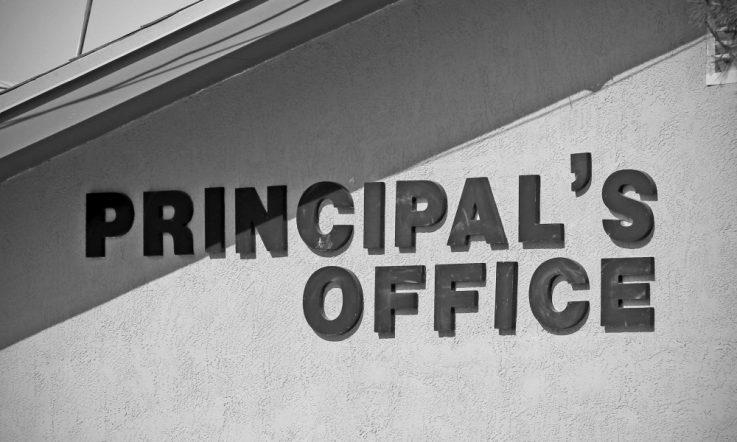Undertaking professional learning as a principal has led Mandy Reynolds-Smith to not only improve her practice, but to also recognise her strengths as a leader.
Reynolds-Smith has had a lengthy career as a principal, and is now the Principal Project Officer for School Engagement at the Department of Education in Tasmania. She took the step to become a Certified Practising Principal (CPP) during her time at Montrose Bay High School in Tasmania, where she was principal from 2010 to 2018. She says this experience highlighted the power of using evidence to improve practice.
To achieve the CPP award, principals undertake an evidence collection process to demonstrate how they meet the Australian Professional Standard for Principals through their practice. It's a lengthy process of usually at least 18 months and involves principals documenting two school improvement initiatives they are leading at their school.
‘Personally, I think when you volunteer to undertake professional learning – which is how I actually see the CPP, as part of professional learning – I think, as an experienced principal it's really important to give something back to the profession,' she tells Teacher.
‘It made me aware, I was thinking, I wish I had undertaken this process a number of years ago because I think I would have been a better principal. But it also made me reflect on how many elements of my practice that I was really strong in.'
Before undertaking the certification process herself, Reynolds-Smith was involved in the Change Team, a strategic planning group during the development stages of CPP and the National Prototype Trial. She says having principals like herself driving the program shows the profession is taking ownership of it.
‘It being driven by the principals, for me, that was a very powerful message around how we actually view professional learning … I felt really strongly about the fact that it would be a really powerful tool for principals to use to improve their practice and I was very keen to work as part of that national movement to see that come to fruition,' she says.
Career progression opportunities
Reynolds-Smith says the process has helped her progress to working in her current role because of the powerful evidence she collected throughout.
‘It made me very confident in applying for a state-wide role because in the application it asks for evidence of this and evidence of that, and I was thinking, actually, the CPP provided evidence for every criteria that I was asked to comment on. So it was very holistic,' she explains.
She also said it gave her a strong sense of competence to undertake her new role, and, even though she has had a lengthy career as a principal, she still found this evidence-based process a valuable way to improve practice.
‘And it really highlighted my strengths for me, identified areas that I might want to focus on, too. So going through the process is really powerful reflective practice.'
A balance of individual and collaborative work
Although the certification process is focused on individual reflection on practice, Reynolds-Smith says collecting evidence involved collaborative efforts as well, particularly with her senior leadership team.
She discussed evidence ideas with her colleagues, who were then able to remind her of examples of her leadership that may not have yet crossed her mind. They also assisted her when she needed to take videos of particular meetings in order to collect evidence for certain areas of her portfolio.
‘So there was a both an individual and a team approach to that sense in terms of I was sharing the work I was doing, they were well aware of it. I certainly asked their advice around the sources of evidence I might use,' she says.
‘And the fact that lots of stuff we'd done, I'd forgotten about. And they would say, “Oh, why don't you use that coaching thing that you'd done with me?” So, yes, whilst it was driven by me, I certainly used the team to support me in pulling all those evidences together.'
She says having the certification is absolutely a recognition, especially at a systems level, that she brings a high degree of expertise, which is recognised nationally.
‘I do think it will really lift our profession as a whole if we have more and more principals undertake this to understand more holistically how they can put the standards into action,' she says.
All articles in this series:
Mandy Reynolds-Smith says that through reflecting on her professional practice as a principal, she could identify distinct areas she was strong in, and might need improvement in. As a school leader, how often do you reflect in order to inform your future practice?
When you do take the time to reflect, do you do so individually and collaboratively? Why is it important to you to do both?



